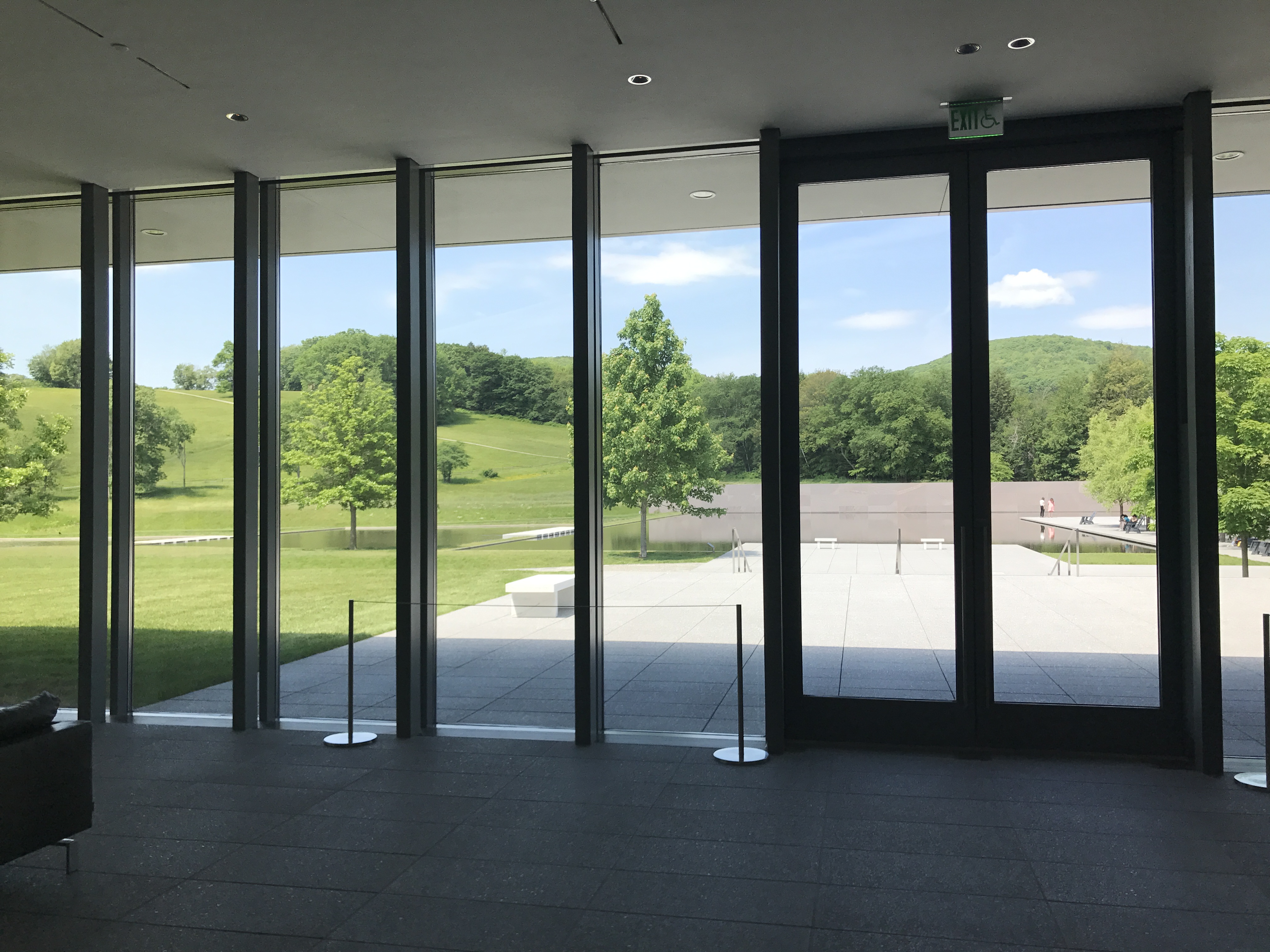New York Governor Kathy Hochul has signed into law a new requirement requiring museums to indicate publicly any object in their collection that was displaced by the Nazis as part of what Congress has rightly called the largest organized theft of art in human history. The significance of this new rule is clear: New York is the center of the art world, and its museums hold a unique place of prominence. As readers of this blog or of my book A Tragic Fate-Law and Ethics in the Battle Over Nazi-Looted Art know, my view has long been that American museums vary widely in their candor and proactive approach to the issue of Nazi-looted art in their collections. Many have shown admirable initiative in probing their collections, while others have shown a regrettable passivity in waiting to receive and then deflect claims. Whether this bill will move the needle on that balance is the question. Transparency and disclosure have been the defining goals of the modern restitution era. This new law serves many of those ideals, but some unintended consequences may follow.
New Law Requires Museums in New York to Display Information About Nazi Art Looting, May be More Complicated than it Looks
Topics: Metropolitan Museum of Art, American Alliance of Museums, Nazi-looted art, Foreign Sovereign Immunities Act, Washington Conference on Holocaust Era Assets, Supreme Court, Washington Principles on Nazi-Confiscated Art, AAM, Museum of Modern Art, Nuremberg race laws, Washington Conference Principles on Nazi-Stolen Ar, Association of Art Museum Directors, Washington Department of Labor and Industries, Solomon R. Guggenheim Museum, Museum of Fine Arts Boston, AAMD, Military Government Law 59, State Department, Holocaust Expropriated Art Recovery Act, HEAR Act, A Tragic Fate, Law and Ethics in the Battle Over Nazi-Looted Art, Governor Kathy Hochul, Reich Citizenship Law, Animal House, Kevin Bacon
My column in Apollo Magazine on museums and deaccessioning in crisis
Continuing our ongoing tracking of the effect of the Covid-19 lockdown on museums and arts organizations, I penned a column in Apollo magazine today. You can read the full article here (subscription required for more than three articles), the first paragraph is reprinted here as a teaser:
One key question for museums boards, management, and their supporters to ask right now is this: what do they actually want to accomplish when the Covid-19 crisis subsides and the lockdowns end? Is a museum its collection, its location, its staff or its visitors? Until recently we had the comparative luxury of asking these questions one museum crisis at a time. Should a small museum (for example, the Berkshire Museum in Pittsfield, Massachusetts) survive at all costs without the collection that created its very importance? Should it seek a better home for its collection but perhaps lose some of its unique character or even its individual existence (see the Corcoran Gallery of Art’s merger with the National Gallery of Art in Washington, D.C.)? Or should it evolve in a way that is perhaps contrary to its founders’ specific desires (the Barnes Foundation’s move to Philadelphia from the truly sui generis yet remote home in Lower Merion created by Dr Barnes)?
Now, with [read more here]
Topics: National Academy Museum, National Gallery of Art, Metropolitan Museum of Art, ICOM, American Alliance of Museums, Philadelphia, AAM, Association of Art Museum Directors, International Council of Museums, Corcoran Gallery of Art, AAMD, Barnes Foundation, Pittsfield, Berkshire Museum, Apollo Magazine, UPMIFA, endowment, Uniform Prudent Management of Institutional Funds
Fate of Museum Collections and Endowments Presents Hard Questions in Hard Times
Since analyzing the likely consequence of gallery and auctioneer insolvencies last month, we have been keeping an eye on how the economic crisis borne of the COVID19 pandemic is affecting the art world. Essentially every museum in the world has had to close its doors in the last month, with the previously unimaginable effect of a 100% drop in attendance revenue. Every museum, from the largest and best-endowed to the smallest and cash-strapped, is grappling with how to sustain its people, its mission, and its future. There are no easy answers, but the Association of Art Museum Directors issued yesterday an interesting update to its longstanding ethical guidelines concerning deaccessioning and restricted assets. As I remarked in a conversation with ArtNews yesterday on the topic, the question of what—and who—an endowment and an art collection is for have never been more relevant, or more difficult to answer. When Brandeis proposed to close the Rose Art Museum in 2009 in the midst of the last financial crisis, the effects were long-lasting. I have negotiated considerable specific requirements to gifts on behalf of museums and donors to account for what, before that event, many had not considered. What will this catastrophe, which is already far worse, bring?
Topics: Brandeis, Metropolitan Museum of Art, American Alliance of Museums, Rose Art Museum, Association of Art Museum Directors, International Council of Museums, Museum of Fine Arts Boston, AAMD, Berkshire Museum, North Adams, Mass MoCA, COVID19, Board of Regents, Brian Allen, CARES Act, Financial Accounting Standards Board, Clark Art Institute, National Review
Rich Man/Poor Man? The Berkshire Museum and Why Deaccessioning is so Frustrating
Two wonderful museums recently announced plans to sell major works of art. In one case, some 40 paintings, American masterpieces among them, will be sold at auction. In another, more than 400 photographs will also be sold. The former case has prompted a nationwide outcry, the latter…effectively nothing. The differences and similarities between the two underscore the aspirational rules that govern what is known as “deaccessioning,” but also remind us that principles and the goals they are meant to reach are not always the same thing.
Topics: Metropolitan Museum of Art, Delaware Museum of Art, American Alliance of Museums, Lee Rosenbaum, MoMA, Deaccessioning, AAM, Norman Rockwell, Association of Art Museum Directors, Alexander Calder, Museum of Fine Arts Boston, AAMD, Pennsylvania Academy of Fine Arts, Pittsfield, General Electric, Waconah Park, Berkshire Museum, Housatonic, Lake Onota, Frederic Church, Albert Bierstadt, Zenas Crane, Williamstown, Lenox, North Adams, Mass MoCA, Felix Salmon
Sea Change in Nazi-looted Art Claims? The HEAR Act is Put Into Action
Two pending cases have invoked the new law
A recent article in the New York Times highlights the change that the recent passage of the Holocaust Expropriated Art Recovery (HEAR) Act of 2016 has had on disputes about the timeliness of claims for allegedly Nazi-looted art. The odd part, however, is that the case cited by the Times is not one in which the HEAR Act has been invoked or argued, though it could be some day. As far as we are aware, there has been briefing on the effect of the HEAR Act in two cases, my clients’ claim against the Stiftung Preussischer Kulturbesitz (SPK) and Germany in U.S. District Court in Washington, DC, and Laurel Zuckerman’s claim as representative of the Leffmann estate in U.S. District Court in Manhattan. Only two months after its passage, the law is already changing the terms of debate.
Topics: Metropolitan Museum of Art, Germany, Seated Woman wiht Bent Left Leg (Torso), Bakalar v. Vavra, Stiftung Preussischer Kulturbesitz, Fritz Grünbaum, Egon Schiele, David Bakalar, HEAR Act, Richard Nagy, Laurel Zuckerman, Alice Leffmann
Léone Meyer’s Claims for Pissarro Transferred to Oklahoma
A U.S. District Court judge has taken the recent invitation of the Second Circuit Court of Appeals, and transferred to Oklahoma a lawsuit by Léone Meyer over ownership of a Camille Pissarro painting at the Fred Jones, Jr. Museum at the University of Oklahoma. The case will now proceed in Oklahoma, where the museum seems likely to assert both sovereign immunity under Oklahoma law, as well as an argument that transfers in Switzerland conferred legal title to the museum as a successor to those transfers. However counterintuitive it seems, it may yet be that a court could agree with Meyer that the painting was stolen, but agree with Oklahoma that a Swiss litigation in the 1950s about whether it was sold to a good faith buyer means that Oklahoma holds full title and ownership.
Topics: David Findlay Jr. Inc., due process, third party beneficiary, Metropolitan Museum of Art, Raoul Meyer, Nazi Occupation, American Alliance of Museums, University of Oklahoma, Aaron and Clara Weitzenhofer, Judge Colleen McMahon, Fred Jones Jr. Museum of Art, AAM, Vichy, La bergère rentrent des moutons, Association of Art Museum Directors, Restitution, David Findlay Galleries, World War II, CPLR 301, Switzerland, Leone Meyer, long art statute, Camille Pissarro, Museums, personal jurisdiction, AAMD, Christoph Bernoulli, Swiss judgment, Rep. Mike Reynolds
Remaining Claims Against AAM, AAMD Related to Pissarro “La Bergere” in Oklahoma Are Dismissed
As we reported last week, the U.S. District Court dismissed claims against the Fred Jones, Jr. Museum of Art, the University of Oklahoma, and associated Oklahoma defendants, over title to the Camille Pissarro painting La bergère rentrent des moutons (a case in which I represented the David Findlay Jr. Gallery).
Topics: David Findlay Jr. Inc., due process, third party beneficiary, Metropolitan Museum of Art, Raoul Meyer, Nazi Occupation, American Alliance of Museums, University of Oklahoma, Aaron and Clara Weitzenhofer, Judge Colleen McMahon, Fred Jones Jr. Museum of Art, AAM, Vichy, La bergère rentrent des moutons, Association of Art Museum Directors, Restitution, David Findlay Galleries, World War II, CPLR 301, Switzerland, Leone Meyer, long art statute, Camille Pissarro, Museums, personal jurisdiction, AAMD, Christoph Bernoulli, Swiss judgment
Claims Against University of Oklahoma Over Pissarro "La bergère" Dismissed on Jurisdictional Grounds
The U.S. District Court for the Southern District of New York has dismissed the much-publicized claims by Leone Meyer against the University of Oklahoma and related Oklahoma public officials and insitutions for the return of La bergère rentrent des moutons by Camille Pissarro, currently in the Fred Jones, Jr. Museum of Art. In full disclosure: I represented David Findlay, Jr., Inc. in the action, who was dismissed from the action last year by agreement.
Topics: David Findlay Jr. Inc., due process, third party beneficiary, Metropolitan Museum of Art, Raoul Meyer, Nazi Occupation, American Alliance of Museums, University of Oklahoma, Aaron and Clara Weitzenhofer, Judge Colleen McMahon, Fred Jones Jr. Museum of Art, AAM, Vichy, La bergère rentrent des moutons, Association of Art Museum Directors, Restitution, David Findlay Galleries, World War II, CPLR 301, Switzerland, Leone Meyer, long art statute, Camille Pissarro, personal jurisdiction, AAMD, Christoph Bernoulli, Swiss judgment
Met Wins Partial Dismissal of Admissions Policy Lawsuit Over Lease and City Laws
A New York Supreme Court judge dismissed the claims filed against the Metropolitan Museum of Art over whether its admissions policy was inconsistent with city law and the museum’s charter. Lost in many of the headlines, however, is that the entire lawsuit was not dismissed; another claim for misrepresentation is, for the moment, still alive.
Topics: Theodore Grunewald, Metropolitan Museum of Art, TomášNadrchal, Filip Saska, Patricia Nicholson, Stephen Michelman, City of New York, Litigation, Museums, Manhattan County Supreme Court, Shirley Werner Kornreich
Second Lawsuit Against Metropolitan Museum of Art About Admissions Policy
For the second time in less than four months, a complaint has been filed against the Metropolitan Museum of Art over its admissions fee policy. Whereas the November, 2012 action seeks injunctive relief to compel the Met to change its practices, the newest case has been filed as a class action and seeks money damages as well. The Museum has responded forcefully in a statement by Director Thomas P. Campbell challenging the new case.
Topics: Theodore Grunewald, New York City, General Obligations Law § 349, Metropolitan Museum of Art, Filip Saska, Patricia Nicholson, Stephen Michelman, Tomáš Nadrchal, Thomas P. Campbell, Museums






